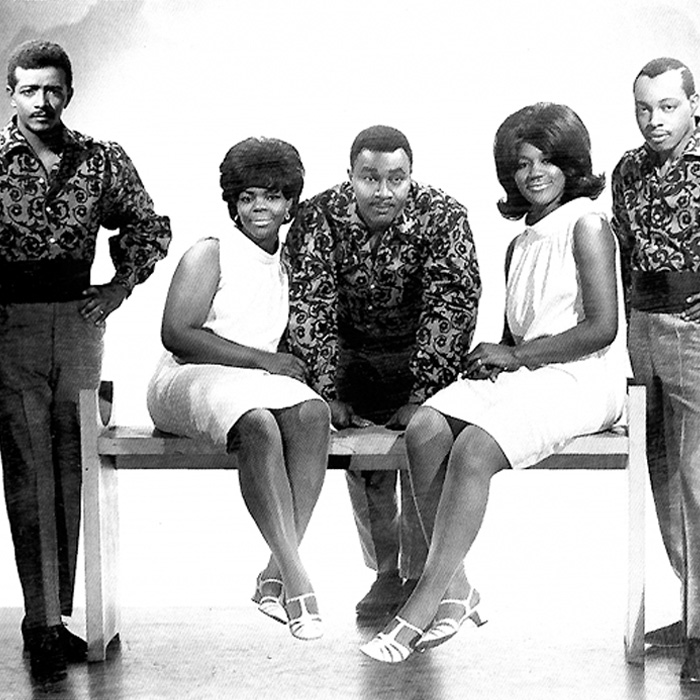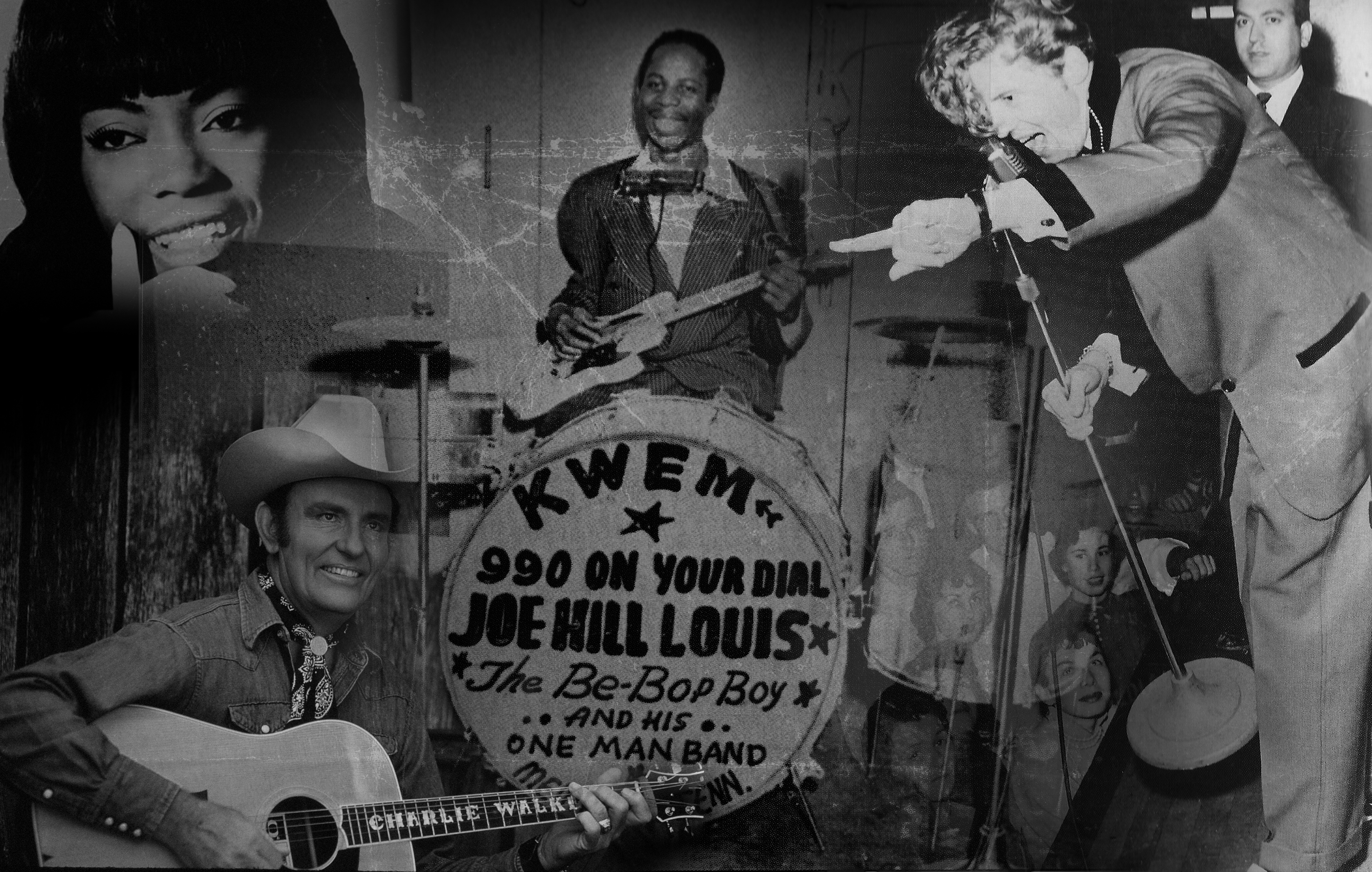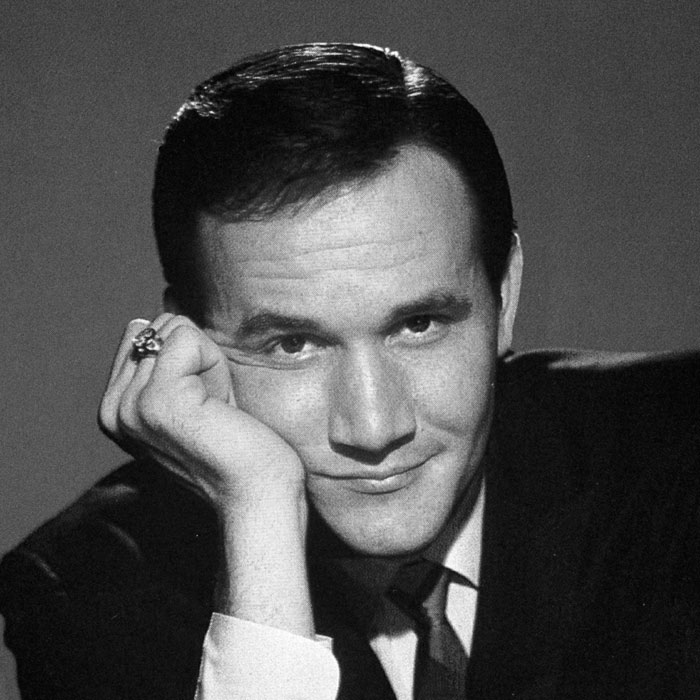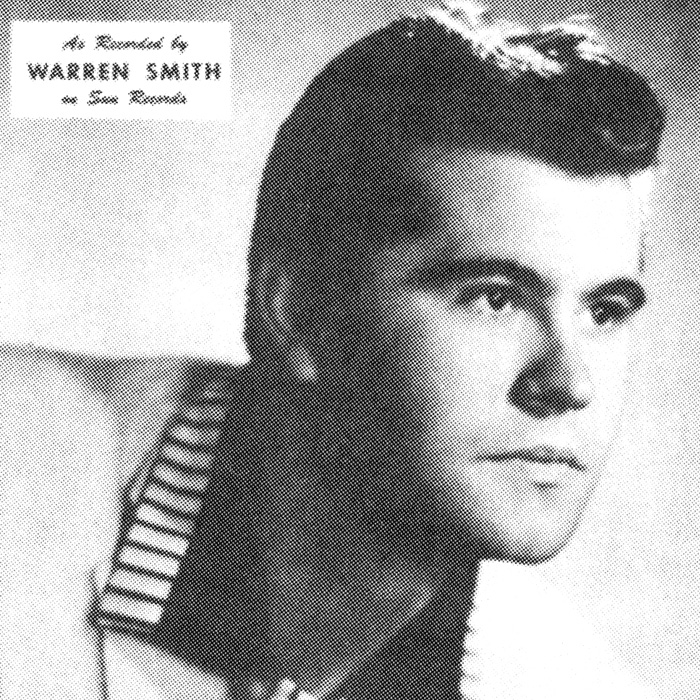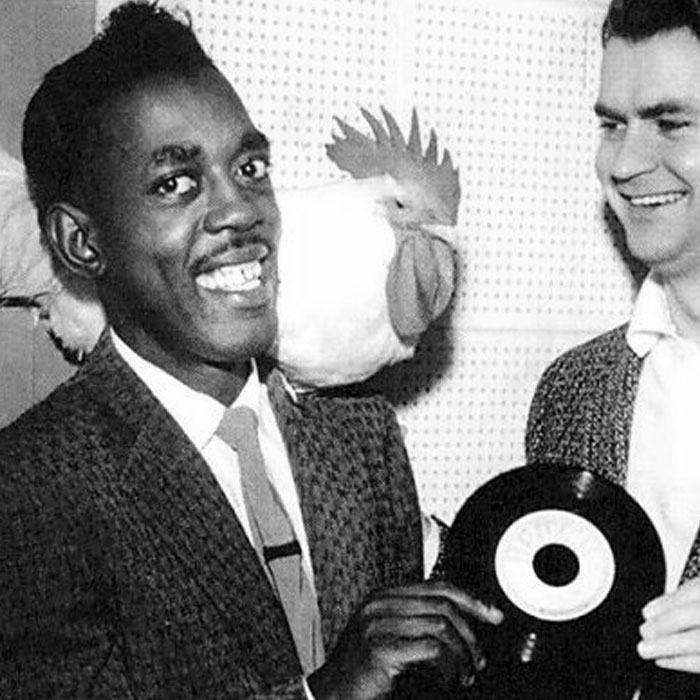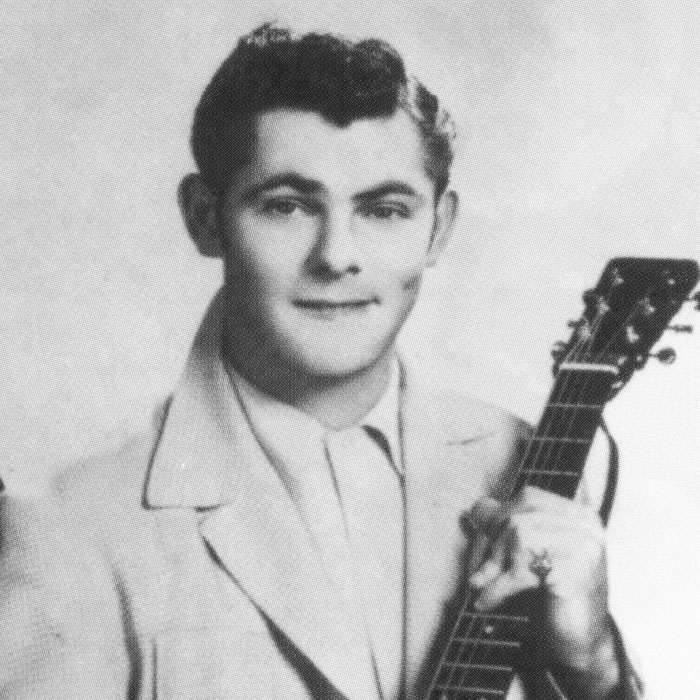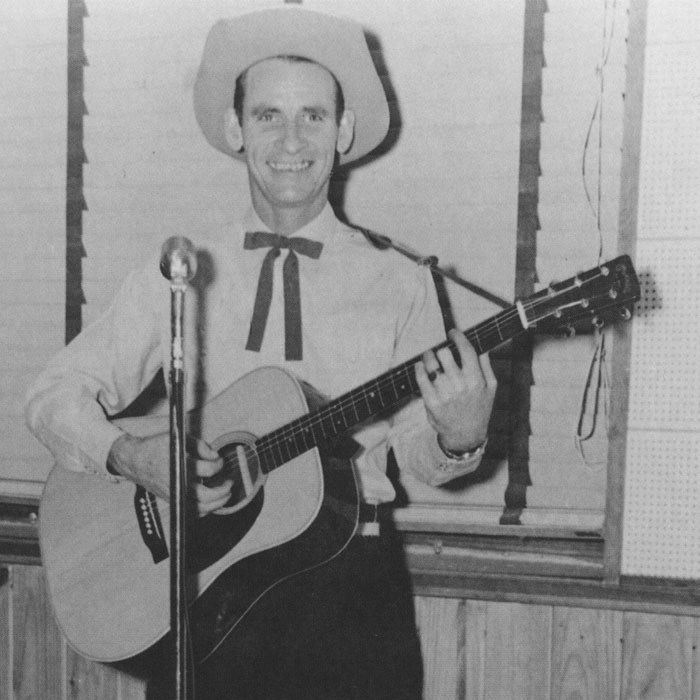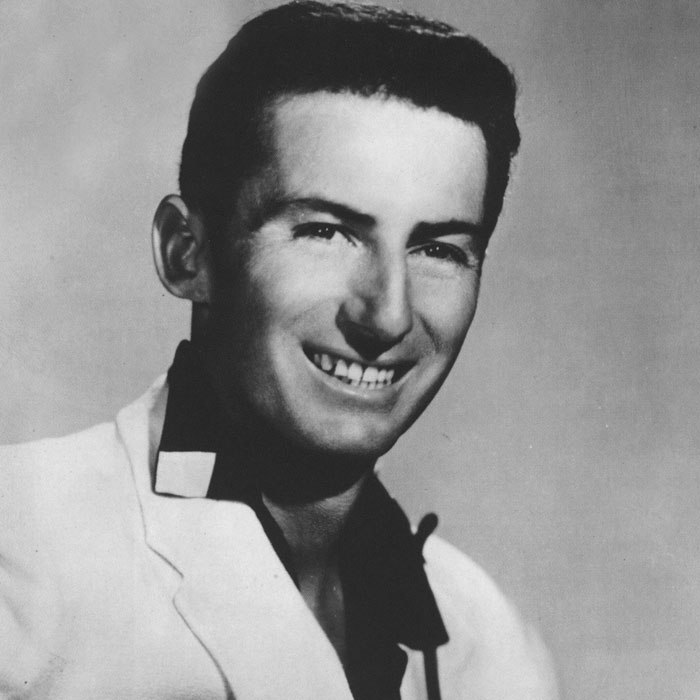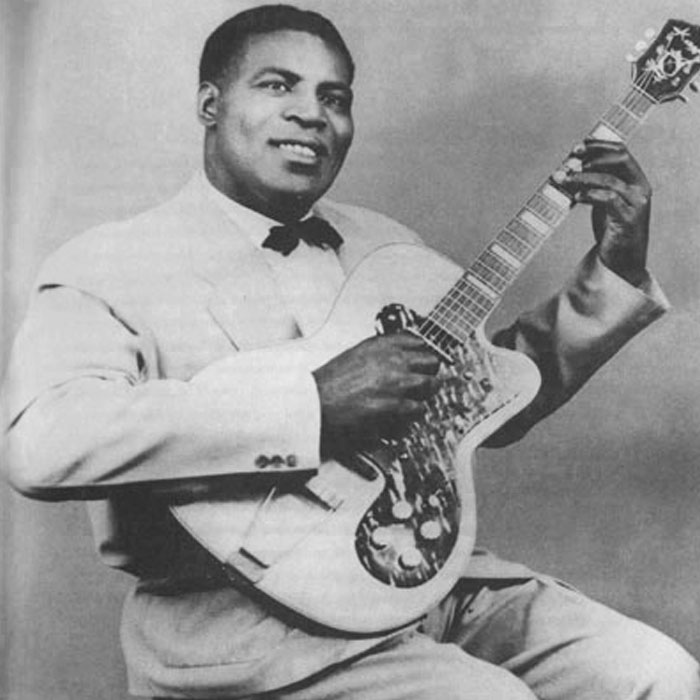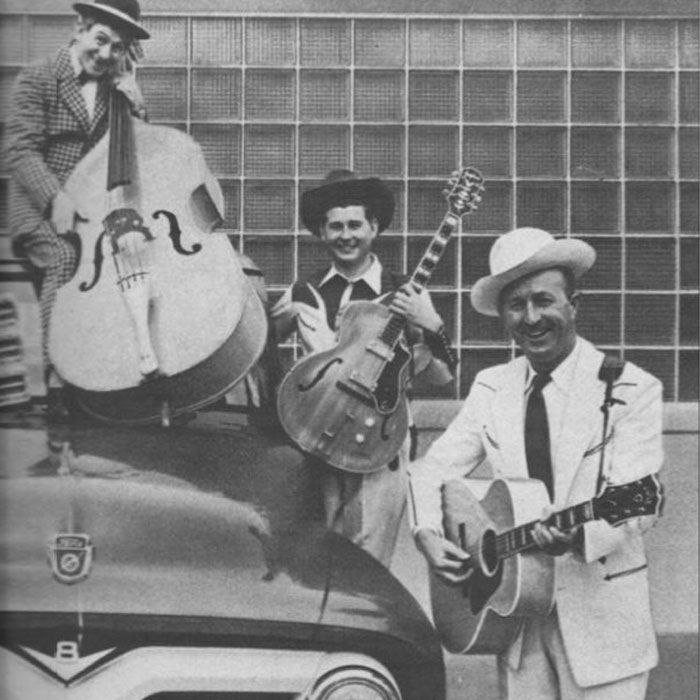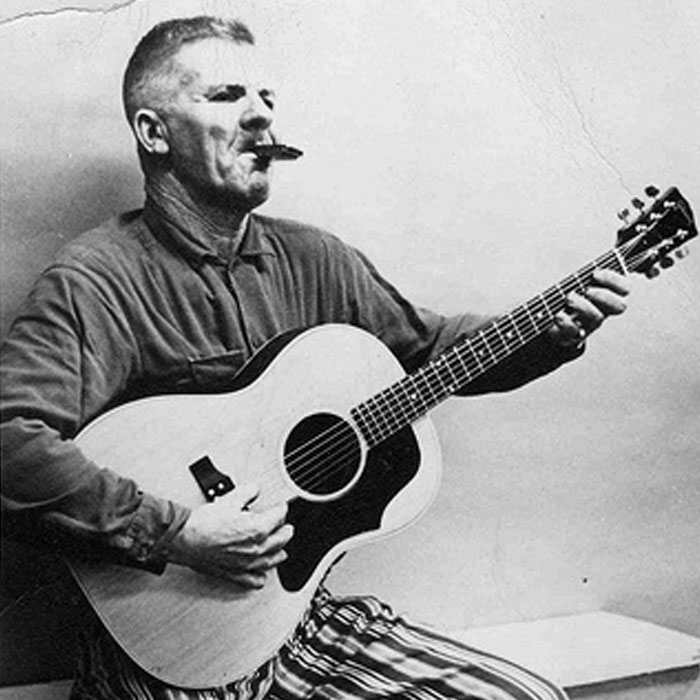Biography
Howlin’ Wolf quickly became a local celebrity, and soon began working with a band that included both Willie Johnson and guitarist Pat Hare. His first recordings came in 1951, when he recorded sessions for both the Bihari brothers at Modern Records and Leonard Chess‘ Chess Records. Chess issued Howlin’ Wolf’s How Many More Years in August 1951; Wolf also recorded sides for Modern, with Ike Turner, in late 1951 and early 1952. Chess eventually won the war over the singer, and Wolf settled in Chicago, Illinois c. 1953. Upon arriving in Chicago, he assembled a new band, recruiting Chicagoan Joseph Leon “Jody” Williams from Memphis Slim’s band as his first guitarist. Within a year Wolf enticed guitarist Hubert Sumlin to leave Memphis and join him in Chicago; Sumlin’s terse, curlicued solos perfectly complemented Burnett’s huge voice and surprisingly subtle phrasing. Although the line up of Wolf’s band would change regularly over the years, employing many different guitarists both on recordings and in live performance including Willie Johnson, Jody Williams, Lee Cooper, L.D. McGhee, Otis “Big Smokey” Smothers, his brother Abe “Little Smokey” Smothers, Jimmy Rogers, Freddie “Abu Talib” Robinson, and Buddy Guy, among others, with the exception of a couple of brief absences in the late ’50s Sumlin remained a member of the band for the rest of Wolf’s career, and is the guitarist most often associated with the Chicago Howlin’ Wolf sound.
